News
Visit Report on Ghana: Advancing Rapid Diagnostic Test Development and Strengthening Partnerships in Malaria-Endemic Countries
The GHIT Fund is an international organization that supports research and development (R&D) for malaria, promoting partnerships with research institutions, academia, and medical and pharmaceutical companies in low- and middle-income countries (LMICs). This is one of the core strategic objectives under its third five-year plan, "GHIT3.0," which began in fiscal year 2023.
With the goal of building even stronger partnerships with LMICs, the GHIT Fund’s CEO Osamu Kunii and Investment Management, Investment for Impact Team Manager Tatsuhiko Sato visited Ghana in mid-July 2025. Together with researchers from the Ehime University Proteo-Science Center Division of Malaria Research, they visited the Noguchi Memorial Institute for Medical Research at the University of Ghana, research hubs in Cape Coast in southern Ghana, local schools and hospitals, the Embassy of Japan in Ghana, and Ajinomoto Foundation’s maternal and child nutrition improvement projects to observe the current state of malaria research.
Exploring Ghana, a region where malaria remains widespread
● What is malaria?
Malaria is a disease prevalent mainly in Africa, as well as other tropical and subtropical regions worldwide. According to the latest World Health Organization (WHO) report published in December 2024, an estimated 263 million people were infected with malaria globally in 2023, resulting in approximately 597,000 deaths. Of these, 95% occurred in Africa, with a particularly severe impact on young children. The number of malaria cases continues to rise, making it an urgent challenge. (Source: WHO)
● Progress in developing rapid diagnostic tests
Although various malaria control measures are being implemented in Ghana, the WHO reports that an estimated 6.6 million people were infected and about 11,500 died from malaria in the country in 2023. In recent years, asymptomatic malaria cases have become a public health concern due to the risk of further transmission. The development of ultra-sensitive diagnostic tests is expected to significantly improve the detection and treatment of asymptomatic malaria, contributing to better disease control. (Source: WHO)
During our visit to Ghana, we inspected advanced research facilities in the capital city, Accra, as well as medical institutions in rural areas. In these rural healthcare facilities, diagnostic data were still being handwritten, and children's weights were measured using hanging scales, highlighting the prevalent use of analog methods. We also observed challenges faced by smaller cities, such as a shortage of microscopes, highlighting disparities in healthcare resources across regions.
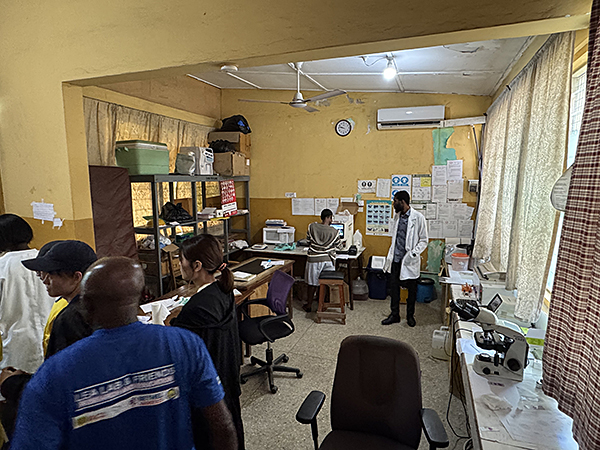
At a national hospital laboratory in Ewin
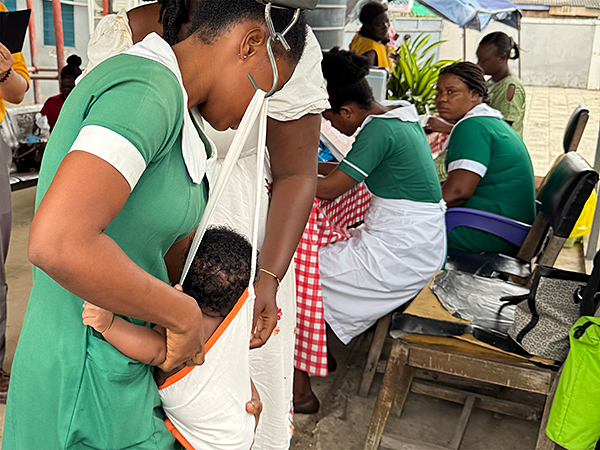
Children's weights were measured using hanging scales
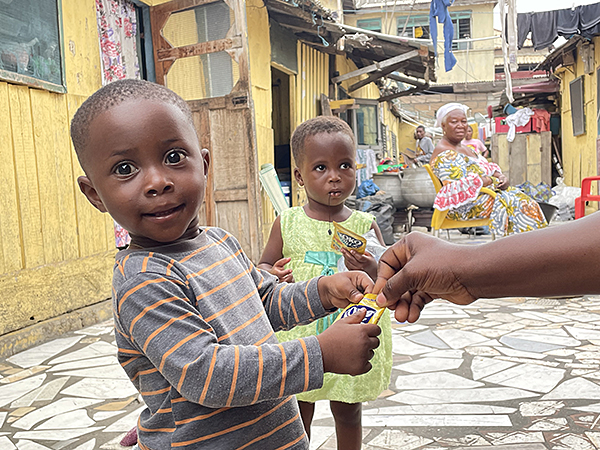
We also visited a local school where fieldwork using rapid diagnostic tests was underway, and observed blood sample collection from children. Since approximately 80% of malaria deaths occur in children under five with weakened immune systems, preventing malaria at home and in the community is extremely important for protecting the health of children.
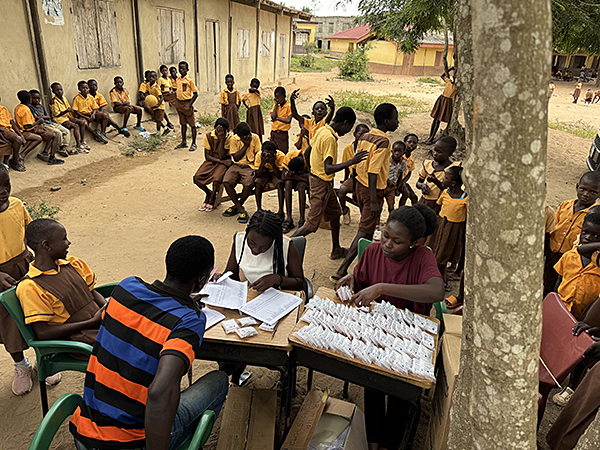
Fieldwork with rapid diagnostic tests at a local school
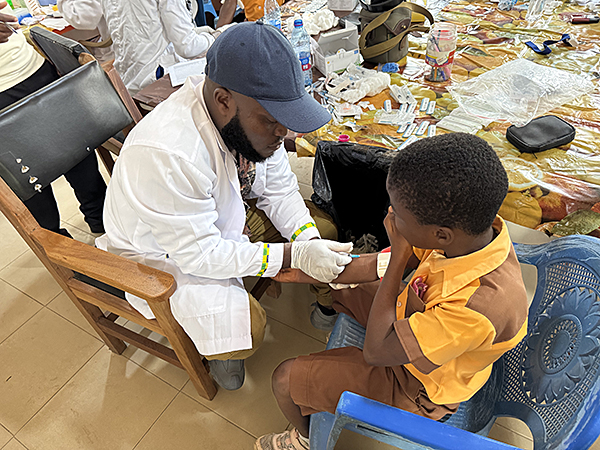
Fieldwork with rapid diagnostic tests at a local school
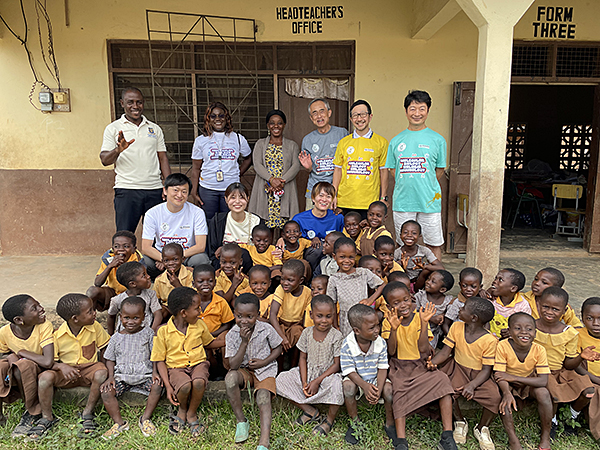
With children in Ghana
Ghana is the country where Dr. Hideyo Noguchi, a renowned Japanese medical researcher, devoted himself to yellow fever research and sadly passed away in 1928 before completing his mission. To honor Dr. Noguchi's remarkable achievements, the Government of Japan established the Noguchi Memorial Institute for Medical Research at the University of Ghana as a symbolic research facility for medical support in Africa. Over the past 40 years, this institute has collaborated extensively with Japanese research organizations and has been actively engaged in controlling infectious diseases locally.
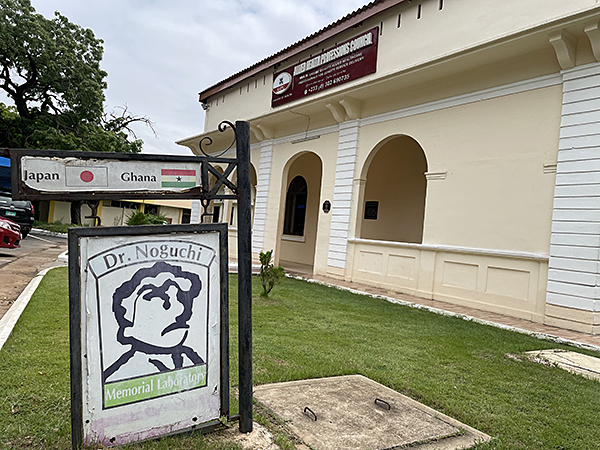
Dr. Hideyo Noguchi Museum & Memorial Garden
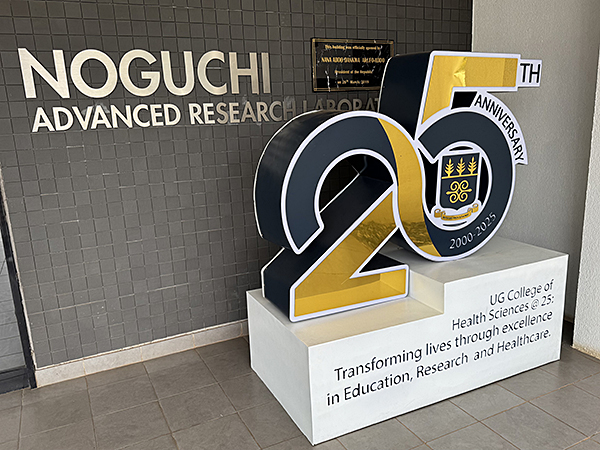
Noguchi Memorial Institute for Medical Research at the University of Ghana
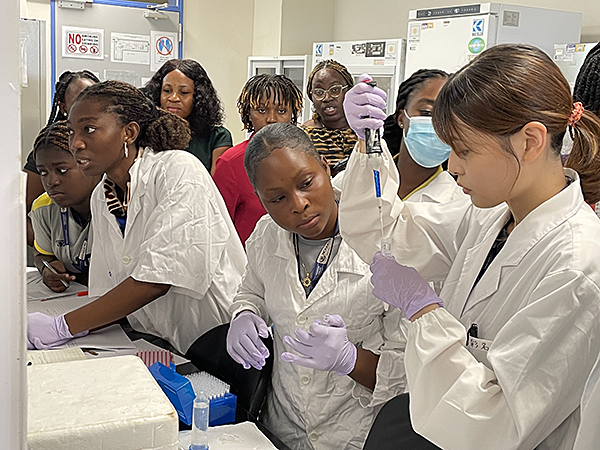
Noguchi Memorial Institute for Medical Research at the University of Ghana
At the Noguchi Memorial Institute, a special lecture titled "Accelerating Research and Development and Promoting Innovation to Fight Infectious Diseases" was delivered by Osamu Kunii, CEO of the GHIT Fund and Chairperson of the Noguchi Africa Award Committee. The Noguchi Africa Award is an international honor recognizing individuals or groups who have made outstanding contributions to infectious disease control and public health promotion in Africa, continuing the spirit of Dr. Noguchi. During the lecture, Dr. Kunii passionately emphasized the importance of research and development and expressed high expectations for the future achievements of young Ghanaian researchers. The session concluded with an active and engaging question-and-answer discussion.
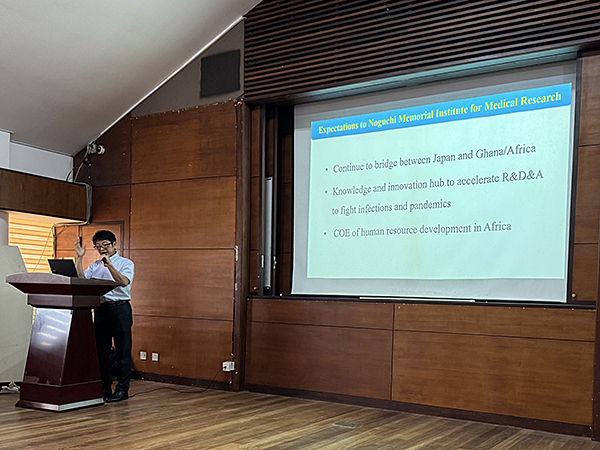
Special lecture by Osamu Kunii
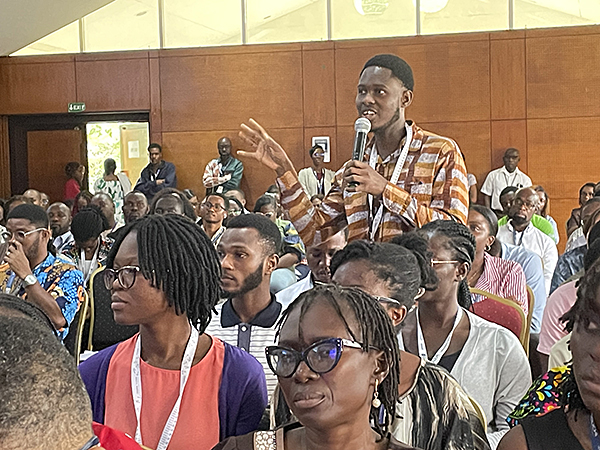
Ghanaian researchers
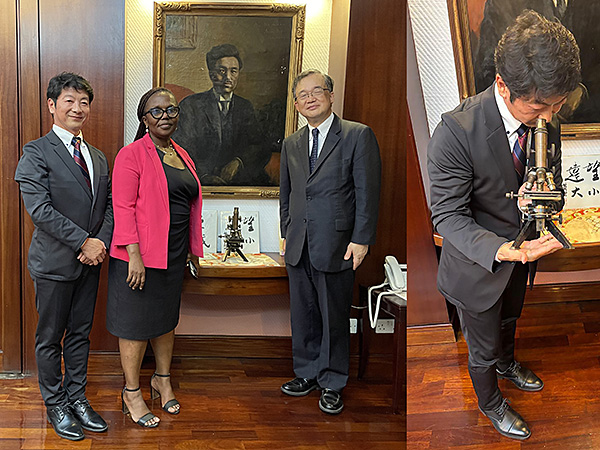
The microscope once used by Dr. Hideyo Noguchi
Malnutrition: A Major Public Health Challenge
Malnutrition is a significant public health concern in Ghana. In addition to the challenge of infectious diseases, malnutrition remains a leading risk factor for death and disability nationwide. Malnutrition contributes to stunted growth and impaired brain development in fetuses and young children, and also causes anemia, which increases the risk of severe malaria and other health problems. Children under five and pregnant women are especially vulnerable to the harmful effects of malnutrition and malaria. As a result, an integrated approach that addresses nutrition, anemia, and malaria simultaneously is urgently needed.
During this visit, the GHIT Fund, with the cooperation of the Ajinomoto Foundation, observed activities at facilities and clinics operated by the Ghana Health Service (GHS) in Accra. The Ajinomoto Foundation has taken action to improve maternal and child nutrition through programs promoting behavior change among mothers, as well as recommending the nutritional supplement "KOKO Plus®" as a practical solution in collaboration with GHS. Through these experiences, we recognized that nutritional support is just as essential as medical interventions in the fight against malaria in Ghana.
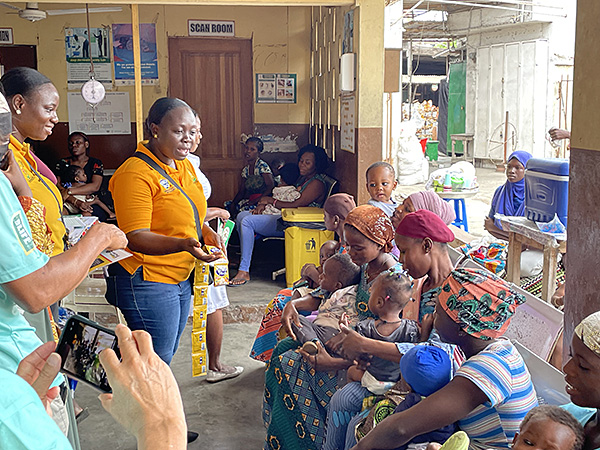
Nutrition guidance for mothers and children
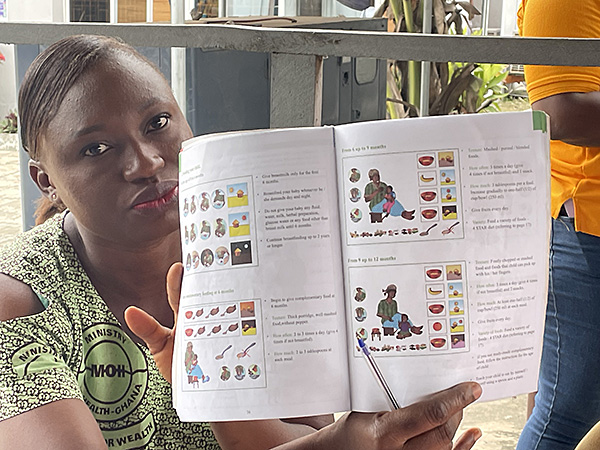
Examples of age-specific meals illustrated in maternal and child health handbooks
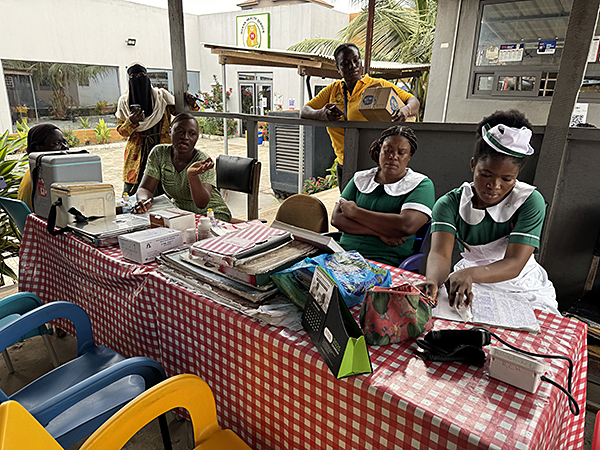
Nurse from the Ghana Health Service
The GHIT Fund will continue to actively support research and development tailored to local needs and conditions through strong partnerships with research institutions across African countries.
Source: WHO
https://www.who.int/news-room/fact-sheets/detail/malaria
https://www.who.int/publications/m/item/malaria-2024-gha-country-profile